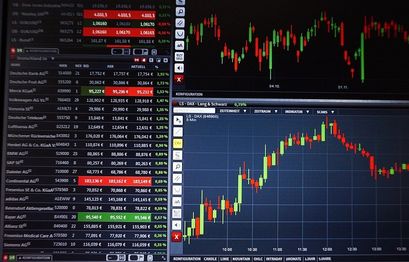Expanding into foreign markets and becoming an international trader can propel a small and even large business to new heights. Globalization is a great way to explore new business opportunities and markets. It helps companies to spread their wings far and wide instead of depending on just one region, especially if the market is not doing well or there is too much competition.
Going international might be the right move for your business if you arelooking to sample new markets. Graduating to a global brand, however, is oftennot as easy as branching out in the same country. You need to be prepared forall the challenges associated with making such a move. Here area few essentialtips that should help with the transition.
Understand the Market
Before even thinking of engaging with a foreign market, you should take your time to research extensively about the country and the market in question. Just like expanding into a new local market segment, you need to conduct thorough market analysis; only this time, you may want to take a keen interest in geographic-specific vital factors.
The thing is, cultures and markets vary widely from country to country. You might find that consumer preferences and market trends are very different on foreign soil from what you’re used back at home. It’s therefore important to find out how your brand would fair in an overseas market before you start pouring resources in the expansion.
It can be difficult to study an overseas market from home conclusively,so you may need to have some people on the ground researching on your behalf.You can also work with international correspondents or marketers to getvaluable information about the country.
Establish a Global Presence
Once you’ve decided that your brand and its offering work on foreign soil, you can start thinking about rolling out the expansion and branding your businesses as an international trader. One effective way of doing this is by establishing an online presence that serves both your local and soon-to-be foreign markets.
The internet really does shrink the global community to what some call afishbowl. Online presence, maybe through an e-commerce platform, can serve as abase where people from any part of the world can find and interact with yourbusiness. It’s also an excellent way to advertise that your company operates inseveral countries and to identify your enterprise as an internationalbrand.
Accommodate Global Financing
Taking care of finances is a common headache for many internationaltraders. First, different countries use different currencies whose value doesnot always translate linearly. And on top of that, the value of worldcurrencies can be affected by many external factors. Secondly, not allcountries accept various facilities for convenient money transfers acrossinternational borders.
All these factors are a problem when it comes to receiving and sendingmoney for purchases and payments. One way of solving this is by partnering witha bank that allows for international money transfers.
One such institution is the GBTI bank if Guyana, with the provision of visa cards and electronic banking, individuals and businesses use the bank to transfer funds across various borders. In addition, you may also need to customize your online platform to accept international payments through wired transfers, digital currency, and online wallets.
Navigate Legal Compliance
Every country as a unique set of international trading laws dictating guidelines for compliance with customs, taxes, insurance, and even labour. Most countries are particularly keen to see that international traders follow the laid-out procedures and meet legal requirements. Failure to comply with international trading laws can have severe implications, which depending on the country, may include fines and penalties, incarceration, bans, and denial of business permits.
Trading laws are complicated and can dictate the limits and scope ofsome business activities. Besides learning about the rules governing trade inthe foreign market, you should also understand how such laws could affect yourday-to-day business operations and the long-term plan of your enterprise aswell.
Don’t Lose Sight of The Big Picture
You need to have a solid plan when going into the international marketspace. Define both your short term and long-term goals for the venture and makesure you stick to the path that leads to the realization of those goals.
Businesses sometimes venture into international markets without havingclear objectives. You should decide early on what you hope to achieve byexpanding your market scope. Are you there for the long haul, is it just abusiness fling, are you hoping to rebrand, or are you leaving the local marketaltogether? These are some of the questions you need to have well-thought-outanswers to before going international.
Highlighting these challenges is not meant to scare or deter you fromexploring international markets. It just gives you an idea of what lies aheadto help you prepare your business for international trading. Take comfort inthe fact that many companies have taken on foreign markets and ended up beingimmensely successful.












